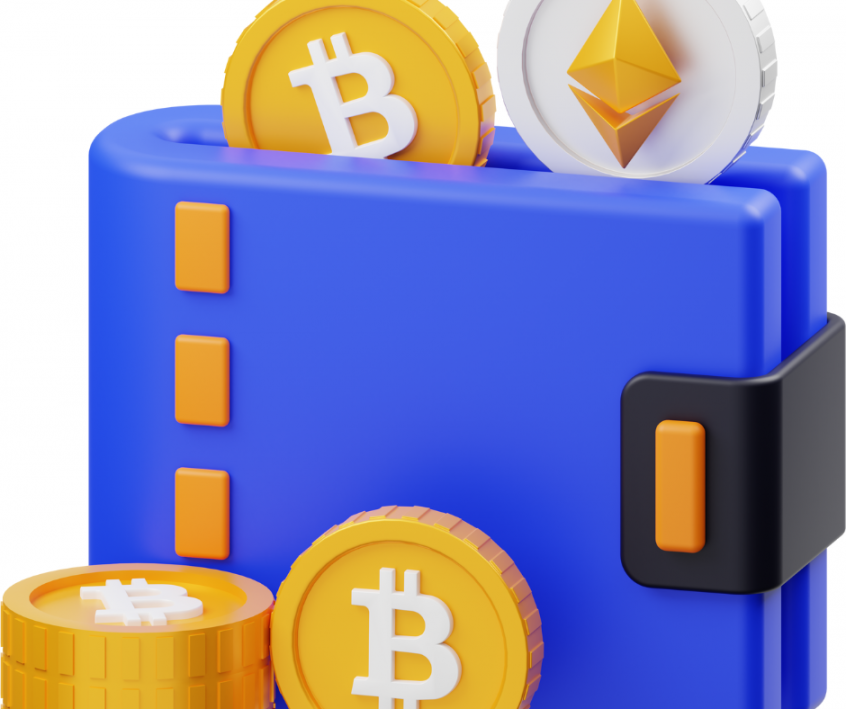If you’re learning about cryptocurrency, there’s a good chance you’ve heard of crypto wallets. But what is a crypto wallet — and why do you need one?
Let’s look at crypto wallets and why you need one.
What is a Crypto Wallet?
A crypto wallet is a program or device designed to recognize and “store” digital assets. The wallet has a string of numbers and letters that serve as your address. When your wallet receives a cryptocurrency token, it’s sent to that address. In order to access your crypto wallet, you must have the keys to the wallet. The keys are similar to passwords. In order to sign a transaction, you often need the correct key.
Each wallet has a program designed to recognize different crypto tokens. Technically, a crypto wallet doesn’t store the coins you have. Instead, it looks through the database where bits of cryptocurrencies are stored and adds up the tokens associated with the wallet’s address. Then, it displays the total for you to see in an easy-to-read format.
Crypto wallets come in three main forms:
- Hardware. This looks like a USB drive, but it stores your keys off your main internet-connected computer. This makes it harder to hack (although not impossible). In order to complete a transaction, you must plug in your hardware wallet.
- Software. A software wallet amounts to an application, usually on your computer or mobile device. They are usually connected to the internet, making it easy to complete transactions.
- Paper. You can write down your wallet address and keys and then enter them manually. Some paper wallets come with a QR code that stores the information. You can scan the QR code and complete a transaction. However, these can be lost or damaged easily, so it’s important to keep them in a safe place.
Coin Compatibility
It’s important to note that not every wallet is compatible with every type of coin. Some crypto wallets are designed to manage several different cryptocurrencies. However, you might have a separate address inside that wallet for each coin. Some wallets can also store non-fungible tokens (NFTs).
Before getting a crypto wallet, make sure it’s compatible with the cryptocurrencies and NFTs you want to store.
Who Controls Your Crypto Wallet?
Some cryptocurrency exchanges also offer wallet services. You store your cryptocurrency tokens on the exchange using a wallet provided by the exchange.
However, it’s important to note that many of these wallets are custodial. This means that the exchange — the custodian — stores the wallet on your behalf. You have an account login and password and can see a summary of your crypto assets. This is convenient and easy.
Understand, though, that when you use an exchange’s custodial wallet, you don’t have access to the keys to the wallet. The exchange controls the keys. It will display the address associated with the wallet, so you can send coins to the exchange, but you won’t know your keys.
A noncustodial wallet, on the other hand, is one that you have direct control over. You control the keys and the crypto.
No matter what type of wallet you have, though, it’s important to keep your private keys, well, private. Anyone who knows your keys can get into your wallet and access your digital asset. They can transfer coins or NFTs out of your wallet and to an address they specify. While it’s possible in some cases to recover your crypto assets, it’s not assured. They’re more likely to be gone forever than that you’ll get them back.
Why You Should Have Your Own Crypto Wallet
While it’s easy and convenient to keep your cryptocurrencies on an exchange, you should also consider getting your own wallet.
If someone gets your login information, they can access your exchange account and drain it. And there’s no guarantee that the exchange will reimburse you for the fraud. Additionally, exchanges can choose to freeze your account. They can also restrict trade on specific coins. As a result, you could end up losing access to your crypto assets — or be unable to sell or trade them.
On the other hand, if you have your own crypto wallet, you control your crypto assets. You can take them to decentralized exchange and sell or trade them. It’s also possible to store them in a more secure manner. For example, you might use an exchange to buy a cryptocurrency and then send the coins to your own wallet for storage.
Consider your goals when investing in crypto assets. Some investors only keep a small portion of their assets on the exchange, for ease of use when trading. The rest of their crypto is in a secure wallet, with keys only they control. This limits potential losses due to a cryptocurrency exchange failure or some other issue.
Think about how far you trust an exchange and then make the right decision for you.

